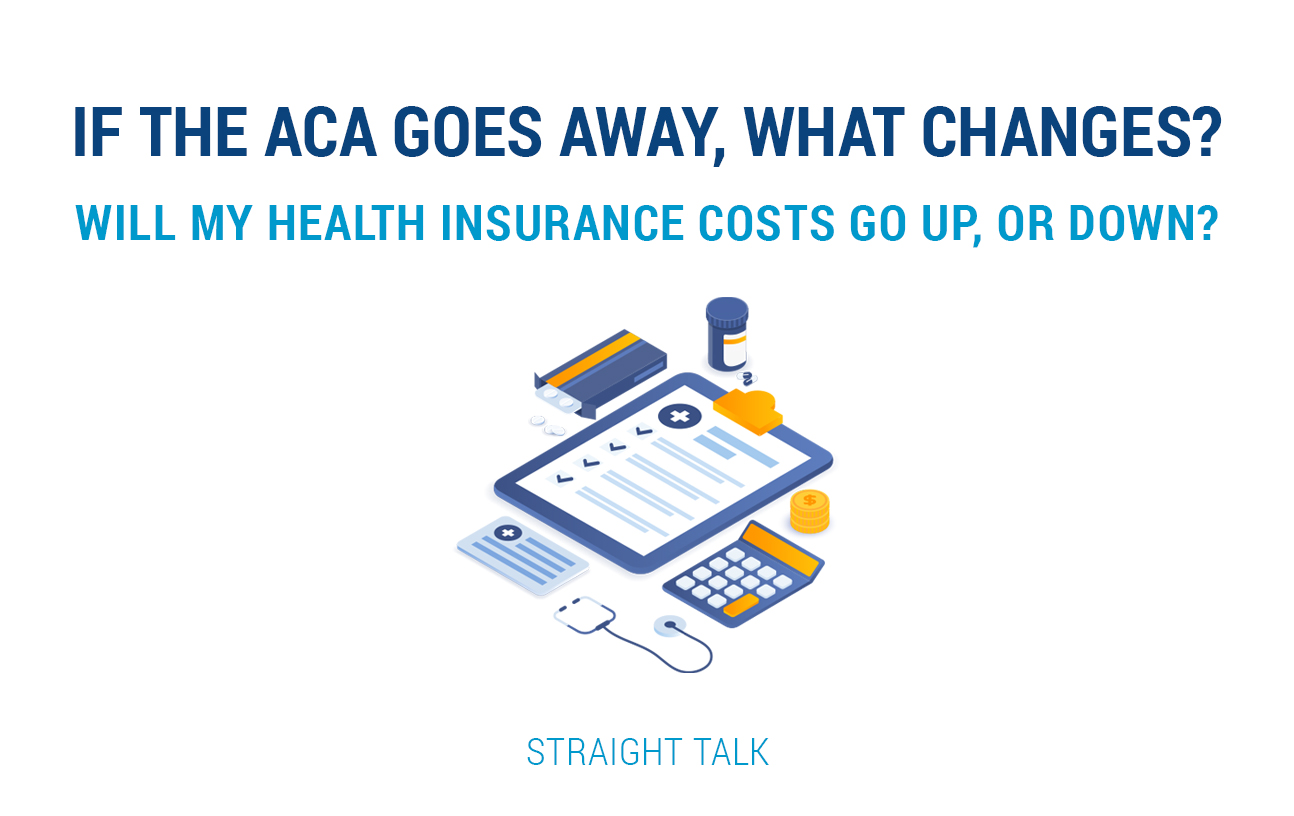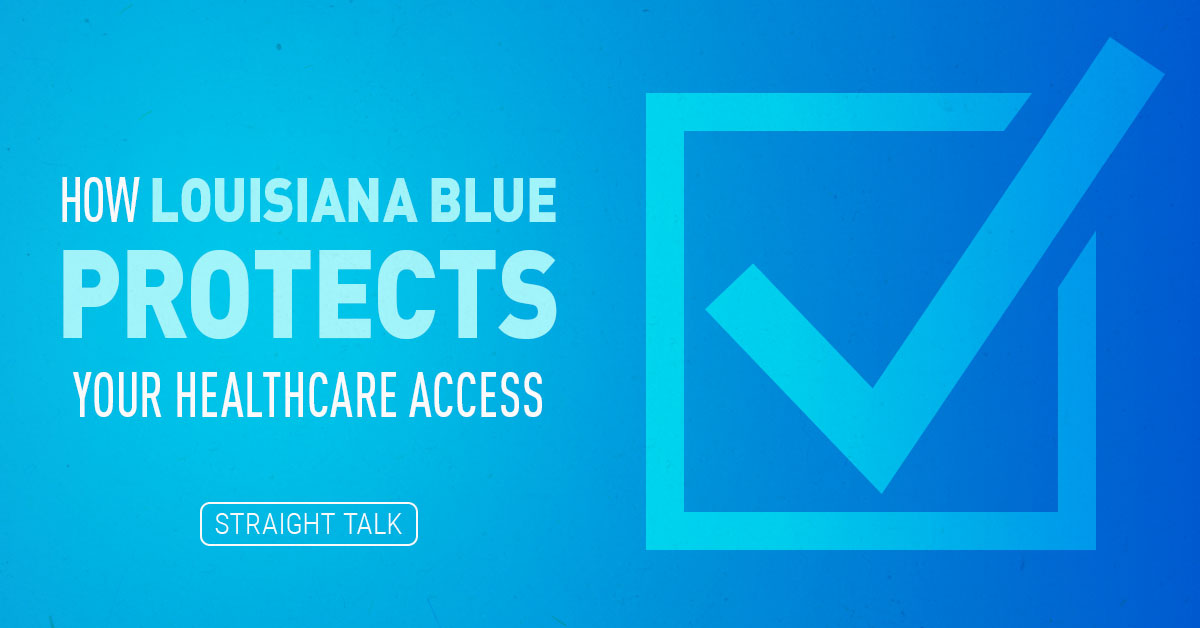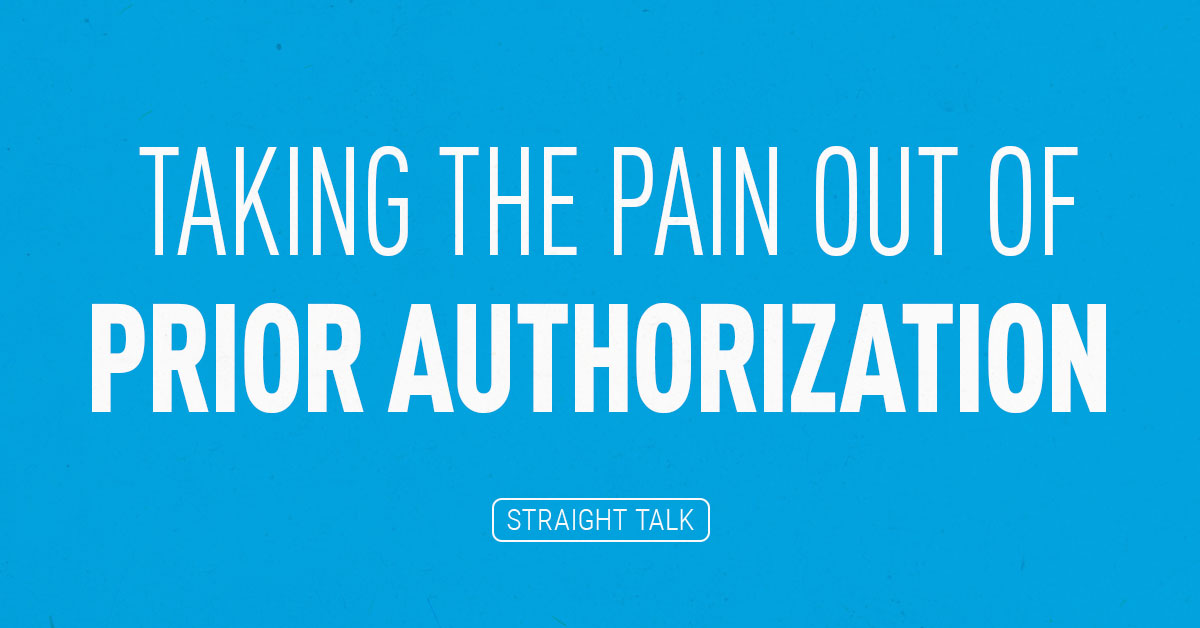In my last installment of Straight Talk, I started to give you some real-world details about what would happen if the Affordable Care Act, recently determined to be unconstitutional entirely by a federal district court judge in Texas, actually ended.
Last week, we took a look at what the removal of the ACA itself (the 2,800-page bill and the 90,000 pages of federal regulations) would mean for your insurance coverage. We went into detail about the parts of your health insurance plan that the ACA now REQUIRES that were not there 10 years ago when it was passed.
This time, we’re going to tackle question #2: Will my costs to buy health insurance go up or down?
The interesting thing about the ACA is that my answer to that question is “Yes.”
Who Will Lose If the ACA Goes Away?
Mike, that’s no answer at all!
Yeah, I get that. But the ACA is so large, so complex and touches so much of the health insurance marketplace that I can easily find people who are paying more today because of the law and I can just as easily find people paying less. This debate boils down to the winners and losers if the ACA goes away.
LOSERS: People Who Got Insurance in the Medicaid Expansion
The first thing the ACA did was create an opportunity for any willing state in the union to add a new, significant category to their existing Medicaid programs, almost entirely at federal expense. I often say the ACA “put Medicaid on sale” for the states. So, how did that work?
Prior to the ACA, Medicaid programs around the country consisted of a basic coverage set of categories and a patchwork of enhancements states were doing on their own with their own money. The poorer the state, the less enhancement it could afford. Richer states freely added more local money to their federal money and made their Medicaid programs more comprehensive and covered more people. That was until 2010.
Let’s look at Louisiana specifically, a VERY poor state (47th in household income), to get a feel for how this worked.
To be eligible for the Louisiana Medicaid program pre-ACA, you had to fit into a “special needs” category. To get Medicaid coverage, you had to be:
- Very poor (income below 25% of the Federal Poverty Level, WITH an asset test)
- Blind
- Disabled
- A low-income, pregnant woman (LaMoms, started in 1984, until two months postpartum)
- A child in a low-income household (LaCHIP, started in 1997)
- Developmentally disabled (significant waiting lists)
In other words, it was hard for a healthy adult, at all but the lowest income level, to get into the program. Even with these restrictions, Louisiana enrolled 1.4 million people into the program by 2016. The normal funding for these folks was 63% federal money, 37% state money. Even at these rates, Medicaid has been the largest state budget item since about 2006.
The ACA offered states a new enrollment category designed SPECIFICALLY to capture poor, able-bodied adults. It has a hard income line for anybody who wants to enroll – 138% of the Federal Poverty Level. You can see how much income that is here.
To sweeten the deal, the Feds put the new category on sale, requiring states to pay only a maximum of 10% of the healthcare costs for this new group of Medicaid enrollees. The other 90% was paid directly by the federal government.
Louisiana took up the deal in July 2016. Lots of people are signed up. Nationally, this part of the ACA added free health insurance coverage to lots more people. All of these folks would see their costs of health insurance go up dramatically if the federal funding provided via the ACA disappeared. So, that’s a big group of people whose costs would go way, way up. Way up.
LOSERS: People Who Get Subsidies to Buy Health Insurance
The ACA also created a national marketplace that people can use to buy private health insurance and access federal assistance in the form of advanced tax credits to help them pay their premiums. For certain customers, there is also financial help with cost sharing like deductibles and copays, too.
Today in Louisiana, lots of people get health insurance through the federal marketplace, and around 90% of them are getting financial assistance. ALL of that 90% here in Louisiana would see their costs go up. All 50 states have similar exchanges, with federal money supporting them. All of that federal money could go away if the ACA is repealed.
POSSIBLE LOSERS: People with Pre-Existing Conditions
Let’s not forget it’s the ACA that REQUIRED those marketplaces to take all comers, without regard to how sick they are. Everybody gets in, the coverage is guaranteed. That coverage would simply be unaffordable if the ACA disappeared.
POSSIBLE LOSERS: People Who Get Insurance Through Their Employers
One thing most people don’t realize about the ACA is that it set standards for how much employers can charge their employees for the employee’s share of his/her health insurance. Prior to the ACA, there were no such requirements. Since 2013, employers have to ensure that the employee’s share of his/her health insurance premiums (employee-only coverage) stays under a federal threshold. Currently, that number is right at $100 a month for the employee’s contribution (or 9.86% of household income).
This applies to all employers with more than 50 Full-Time-Equivalent employees and most employees in the U.S. It is very likely employees’ contributions to their health insurance would rise without the ACA, perhaps a lot.
Who Will Win If the ACA Goes Away?
But Mike, I know plenty of people who say the ACA drove up their insurance costs! Is that true or not?
Remember, bills as large and sweeping as the ACA, which targeted 18% of the entire economy, always create winners and losers. We’ve touched on the losers if the ACA goes away; let’s talk about the winners for a while.
Because the ACA set tons of new rules (the 90,000 pages) that health insurance providers in the individual market have to follow, the cost of that coverage has gone up. A lot. Like 125%-ish in Louisiana since 2013. You can attribute that mostly to expanded coverage (health insurance covers more stuff) and the guaranteed issue thing we talked about above (health insurance covers lots more sick people with high health costs).
WINNERS: Healthy People in the Individual Market
Before the ACA, you could be turned away from insurance coverage in the individual market because of your health, BUT, if you were healthy enough to get in, you were in a risk pool with a bunch of other healthy people, and your costs stayed very low. So, healthy people with too much income to qualify for tons of federal assistance were clear losers in the ACA, and their costs went up, in some cases a lot.
POSSIBLE WINNERS: People Who Get Insurance for Their Families Through Their Employers
Businesses who offer health insurance to their employees have to do a lot more paperwork and federal reporting today (like counting their employees) than they did pre-ACA. Not only did the law put a bunch of new requirements on them concerning how they OFFER coverage, it also added tons of reporting to let the Feds know that they are in compliance. Sort of a double-whammy on employer plans.
How have they responded to this? Often by shifting those costs to their employees through higher deductibles, copays and higher contributions for dependents and spouses*. This means that employed folks have seen their out-of-pocket costs go UP because of the ACA, even as their coverage might have gotten worse. In general, employer plans have higher costs, which they are sharing with their employees.
*Although the ACA requires employers to offer to dependents, spouses are NOT considered dependents and the amount an employee pays to add them is NOT regulated at all.
Whew!!! That’s a lot to digest, I know. Let me help you with this handy-dandy table:
If the ACA Goes Away:
| GROUP |
COSTS |
DETAILS |
| Low Income (<138% FPL) | Up | 36 States expanded Medicaid, may have no insurance at all |
| Individual <400% of FPL | Up | Loss of Advanced Tax Credits, Cost Sharing help. |
| Non-employed with Pre-existing conditions | Up | May not be able to get insurance at all |
| Employee-Only Coverage | Up | Loss of ACA Affordability Standards |
| Employers/Employee family | Down | Less regulation and Compliance Costs |
| Healthy Individuals >400% FPL | Down | Healthier risk pool with more flexible options |
We’re seeing a lot of activity in state legislatures while the federal ACA case is being appealed. State legislators across the country are trying to build the consumer protections in the ACA into their states’ laws to protect consumers in case the ACA goes away.
BUT, even if the states put into law requirements that insurance companies have to sell individual policies in a guaranteed market (no pre-existing conditions), almost no one will be able to afford that coverage without the huge federal subsidies that are flowing today. Just keeping healthcare.gov alive in Louisiana today costs more than $500 million a year. Our Medicaid expansion alone is more than $3 BILLION a year.
State laws protecting consumers is a good thing. But without federal dollars behind those protections, there will be no coverage.
Pretty Straight, huh? Stay tuned for Part 3 of what happens if the ACA goes away: How many people would lose coverage?
Part 1: Your Health Insurance Benefits and Protections
Part 3: Will People Lose Coverage Completely





Leave a Reply